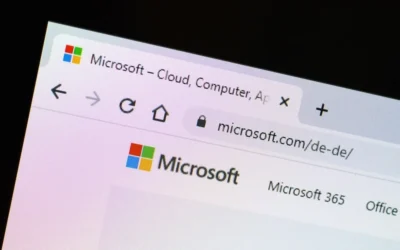I still remember the buzz surrounding the 2017 PBA season like it was yesterday. As someone who's followed Philippine basketball for over two decades, I've witnessed numerous MVP races, but nothing quite compared to the historic narrative that unfolded that year. When June Mar Fajardo secured his fourth consecutive Most Valuable Player award, we weren't just watching another talented player receive recognition—we were witnessing basketball history in the making. What made this achievement particularly remarkable was how it coincided with a transformative period for Philippine basketball, where programs across the board were elevating their game. I recall thinking at the time that this wasn't just about individual brilliance but reflected something larger happening in our basketball landscape.
The numbers Fajardo put up that season were absolutely staggering—he averaged 18.3 points, 13.1 rebounds, and 1.8 blocks per game while shooting 58% from the field. Those statistics alone would typically guarantee MVP consideration, but what truly set him apart was his consistency and dominance throughout the entire season. I've always believed that statistics only tell half the story—the real magic happens when you watch how a player impacts the game beyond the box score. With Fajardo, you saw this incredible presence that forced opposing teams to completely restructure their defensive schemes. Coaches would spend entire practices designing strategies specifically to contain him, and even then, he'd still find ways to dominate. His footwork in the post was something I hadn't seen from a local big man in years—genuinely revolutionary for our league.
What many casual observers might not realize is how Fajardo's historic fourth straight MVP reflected broader developments in Philippine basketball infrastructure. The league had been investing heavily in player development programs, and we were beginning to see the fruits of these investments. I remember having conversations with coaches who noted the rising level of competition across all teams—the gap between the top contenders and the lower-ranked squads was narrowing significantly. This context makes Fajardo's achievement even more impressive because he wasn't dominating in a weak league; he was excelling during what I consider one of the most competitive eras in PBA history.
The MVP voting itself wasn't even particularly close—Fajardo amassed 2,513 points, nearly doubling the tally of his closest competitor. This landslide victory speaks volumes about how his peers, the media, and the league office viewed his contributions. From my perspective, what made this season historic wasn't just the fourth consecutive MVP—it was how Fajardo's game evolved to meet new challenges. He developed a reliable mid-range jumper that season, something critics had said he lacked in previous years. I watched him put in extra hours after practice, honing that exact shot, and seeing it pay off during crucial moments felt like watching an artist perfect their masterpiece.
There's an interesting parallel between Fajardo's individual growth and the development happening across Philippine basketball institutions. The reference to Mendiola's program stepping up their game resonates deeply with me because I've observed similar elevations occurring simultaneously across different basketball platforms. It's as if there was this collective rising tide lifting all boats—from the professional ranks down to collegiate and even grassroots programs. Fajardo became the symbol of this upward trajectory, his personal achievements mirroring the league's overall progress.
What often gets overlooked in discussions about that season is how Fajardo's dominance forced other teams and players to elevate their games. I noticed opponents developing more sophisticated defensive strategies, younger players modeling their training regimens after his work ethic, and even the league's style of play evolving in response to his presence. This kind of transformative impact is rare—we're talking about a player who didn't just win games but actually shaped how the sport was played in our country. His rivalry with other stars like Stanley Pringle and Jayson Castro reached new heights that season, creating memorable matchups that I still enjoy rewatching.
The historical significance of that fourth consecutive MVP becomes clearer when you consider the context—no one in the 42-year history of the PBA had ever achieved this. Even legendary figures like Ramon Fernandez and Alvin Patrimonio, who each won four MVPs, never managed to string them together consecutively. This puts Fajardo in a category entirely his own, and honestly, I don't see anyone breaking this record anytime soon. The physical and mental toll of maintaining peak performance across multiple seasons is enormous, and Fajardo made it look effortless.
Reflecting on that season now, I'm struck by how Fajardo's achievement represented a perfect storm of individual excellence and systemic progress in Philippine basketball. His personal milestones coincided with what I consider a golden era of talent development and competitive balance in the league. The way programs across the basketball ecosystem were stepping up their game created an environment where historic achievements like Fajardo's fourth MVP could be properly contextualized and appreciated. We weren't just watching a great player—we were witnessing the culmination of years of development in Philippine basketball, all crystallized in one remarkable season that I feel privileged to have experienced as a fan and analyst.



